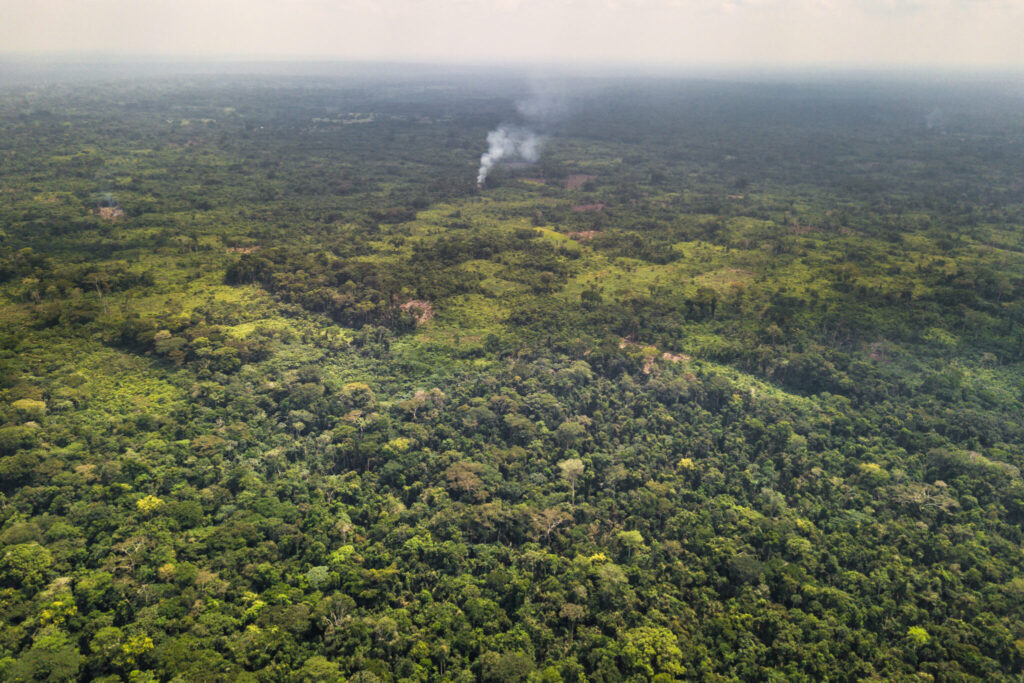 Photo: Axel Fassio
Photo: Axel Fassio
The world’s leading rainforest experts convened on June 23 to discuss the state of the rainforest and how to get back on track in the fight against deforestation. The Oslo Tropical Forest Forum is organized every two years by Norad – the Norwegian Agency for Development Cooperation – and the Norwegian Ministry of Climate and Environment. Because of the COVID-19 pandemic, this year’s conference was held digitally.
The conference was opened by Sveinung Rotevatn, the Norwegian Minister of Climate and Environment.
– The tropical rainforest is indispensable for life on our planet. Considerable progress is being made to combat deforestation, but it nevertheless continues at an alarming rate. The world needs to redouble its efforts, Rotevatn says.
The topic of the conference was the report Tree Cover Loss 2019 from the organization Global Forest Watch (GFW). The report shows that last year, the world lost 3.8 million hectares of tropical rainforest – an area the size of Switzerland. The loss of tropical primary forest accounts for approximately one-third of the 11.9 million hectares of forests which were either felled, burnt down or cleared by other means.
Indonesia: a bright spot
The most affected rainforest areas are in South America, Africa and Southeast Asia. Brazil tops the list of countries with the highest rates of deforestation, with the Democratic Republic of Congo and Indonesia in second and third place.
– Indonesia nevertheless provides a good example of how it is possible to start reversing the trend if there is political will to do so, Rotevatn affirms.
For the third consecutive year, Indonesia has succeeded in reducing the rate of deforestation, while in Brazil, deforestation increased considerably last year. Brazil alone accounted for one-third of global deforestation, according to GFW.
Equivalent to 400 million cars
The report shows that the total loss of primary forest increased by 2.8 per cent in 2019 compared to the previous year. Moreover, deforestation has huge global consequences for the climate. According to GFW, in 2019 the extent of deforestation was equivalent to the annual carbon dioxide emissions from 400 million cars.
– Tropical rainforests play a crucial role, both in preserving the world’s biodiversity and in carbon storage. When the trees are cut down, it can take decades or even centuries before the balance in the forest is re-established,’ says Crystal Davis, Director of Global Forest Watch.
Poverty drives deforestation
The fight against deforestation cannot succeed unless we look at the underlying causes, according to Bård Vegar Solhjell, Director General of Norad. While deforestation in South America is often caused by large commercial interests linked to the production of soybeans, mining and cattle ranching, the main cause in African forest countries is often simply poverty.
– A poor farmer in the Democratic Republic of Congo will do whatever he can to survive. If this means cutting down or burning some rainforest to grow food for the family, this is what he’ll do. That is why it’s impossible to combat deforestation without also combatting the extreme poverty in the country, says Solhjell.
